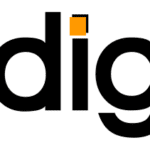
“Live music, more than recorded music, feels like the elixir that staves off the atrophy all that dependency inflicts. I love how simple that truth is.”
A lot of performers, local and otherwise, adapted to the pandemic in impressive fashion, streaming their talents for the rest of us to enjoy during difficult times spent at home. In many cases, they did this despite the tribulations they faced in their own lives.
Mass-based singer-songwriter Will Dailey was at the top of that streaming pack, though with an added charitable element. During the worst parts of the pandemic, he performed more than 90 shows and 40 livestreams and raised in excess of $32,000 for artists, music venue workers, and the people of Chelsea.
Now that the world is almost back in order, Dailey is back to recording. With his single, “Easy to Be Around,” newly released and upcoming party on June 5 at Club Passim, we checked in with the popular philanthropic troubadour.
How long has it been since you’ve been out of the shower and performing in public places instead?
It’s been a long time since I’ve been in the shower. I was only in there for the first two months of the lockdown and then intermittently for a few months after that. I burned out on live streaming. There was something about it that left me somewhat unstable after a while. Missing that one-to-one feeling of being in person started to wear me down.
That’s what I love about playing music. During an emergency, streaming is a nice alternative for connection., but it was last year that I really rehabbed my soul and went out and played 90 shows all over the US. I haven’t showered since.
What’s your biggest lesson learned as far as music goes from the pandemic? You raised quite a bit of money for Passim – did you ever think that would be possible?
Honestly, I was freaked out by the amount of money that the shower shows were raising. I stumbled into it all as one show led into the other. It was particularly comforting to raise what we did for the Passim because they do so much to support artists. I’ve been on the receiving end of that through the years and during the pandemic.
Overall, being locked out of doing what soothes me most during my time on Earth reinforced how much playing live with other people mattered. We are a species now linked to machines 24/7, living under the tyranny of content, ceaselessly demanding we feed it with our time. Live music, more than recorded music, feels like the elixir that staves off the atrophy all that dependency inflicts. I love how simple that truth is.
What have you been particularly enjoying about doing shows again?
Sweating from playing music.
You’ve done a number of charitable performances over the years for a lot of organizations. Does that just happen to be part of your whole mission?
Half the time I am seething that we even need to have charitable causes—most of which are a response, and compensation, to inequities and corruption. Until that glorious day when we have a more just society, there will always be ways to mitigate the struggle.
How was your philanthropic work impacted throughout the pandemic? It can’t be easy for a musician to be looking out for others at a time when people in the arts were particularly screwed?
There were times of panic for sure. (Actually it was mostly panic.)
I started the lockdown thinking it would be two months tops. Looking back, for all of us, even that felt like an extremely long time. Then time itself changed.
Hot Stove Cool Music and the foundation to be named later did a tremendous job keeping its college scholars in school with the online shows that we put on.
The show that I worked on with Calling All Crowes was a highlight. I loved that line up (Chadwick Stokes , Anjimile, Tanya Donelly, Alisa Amador and Oompa to name just a few). There was so much power behind it—we raised $13,000 in two hours.
There were a couple projects where I was actively participating in securing funds for artists in Massachusetts, even while also being an artist that would benefit from them once we were successful. It was a heart swell of everyone being in it together. That’s a positive of the pandemic that I am trying to carry with me.
Did you record a lot during the pandemic? Are you recording a lot now? When did you make the music that is coming out now? Including the new single?
The songs piled up like dishes in the sink during the pandemic. In addition to that, the idea of releasing music feels somewhat foolish in the current climate (gestures to everything everywhere all around). We pour ourselves into these pieces of art and then throw them into a massive abyss hoping someone will click on it before it disappears into the nothing. It is so routine now that we don’t even think about it. We have issues with the platforms but it is also incumbent upon the artist to break up the monotony.
I recorded a few tracks during the pandemic, and kept them to myself just as sonic therapy. I finally released a song a few weeks ago and included a credit track that plays after the single. It was a way for me to take the process of sharing on platforms and flip it around to celebrate the people involved, the song, and disrupt the algorithm.
And finally, tell us about what people can expect at the show on the 25th?
I am going to honor our time together and continue to be more grateful than ever that this is my job.
Dig Staff means this article was a collaborative effort. Teamwork, as we like to call it.

